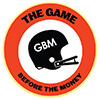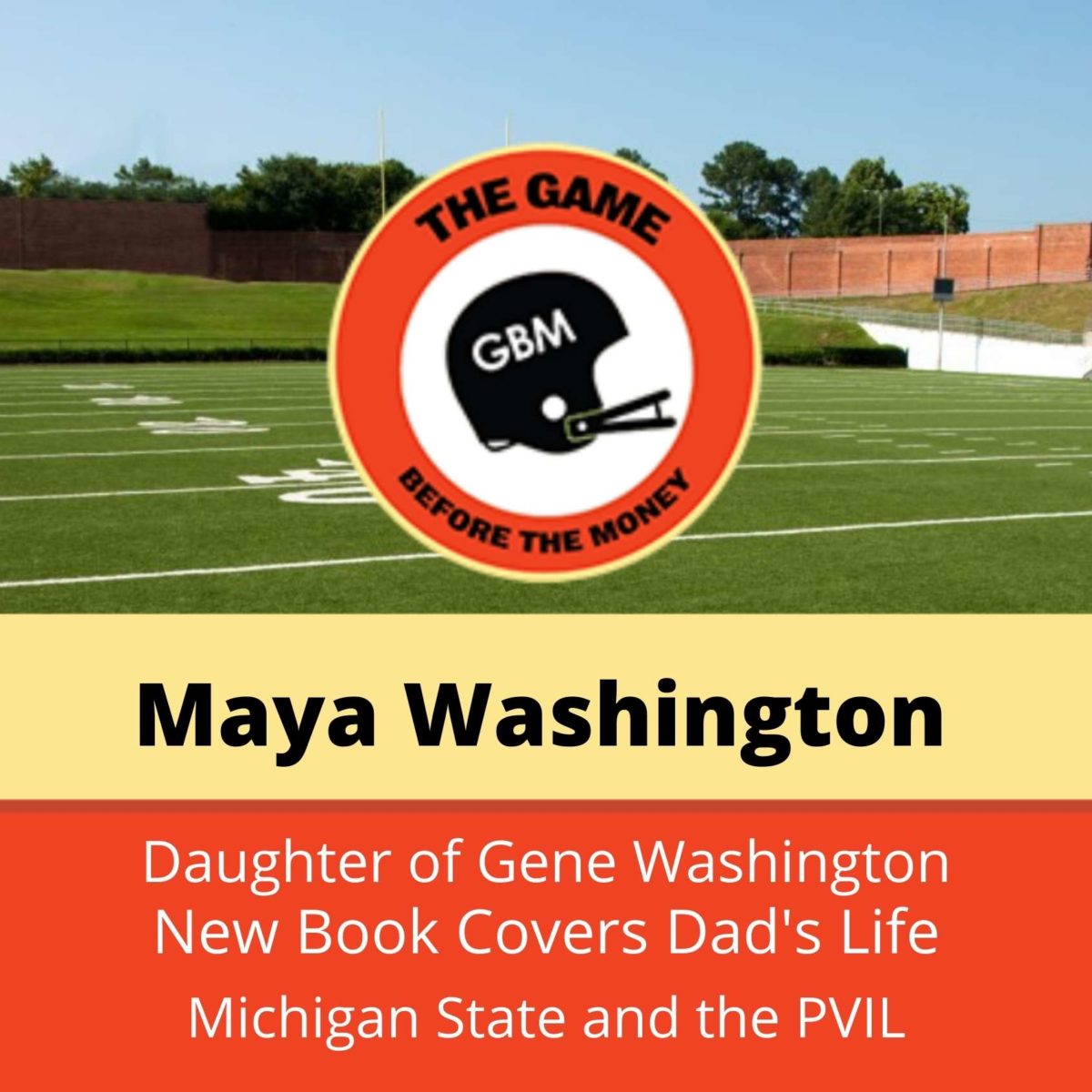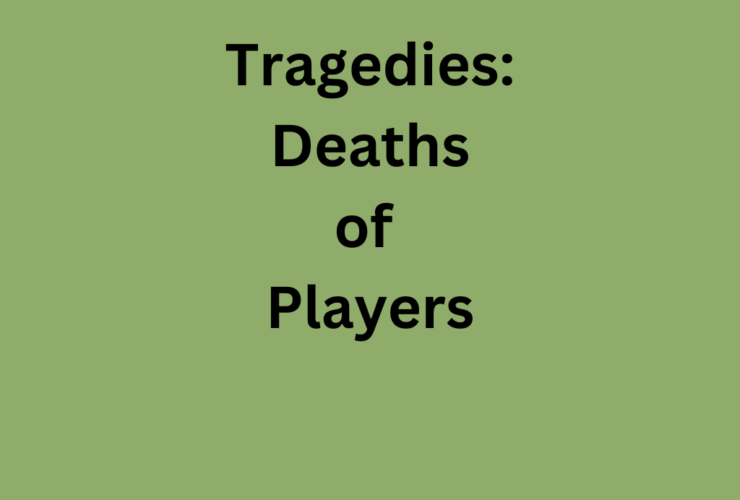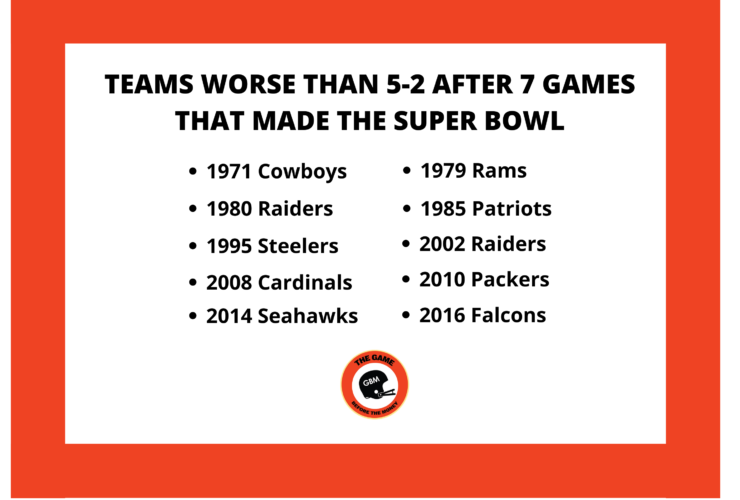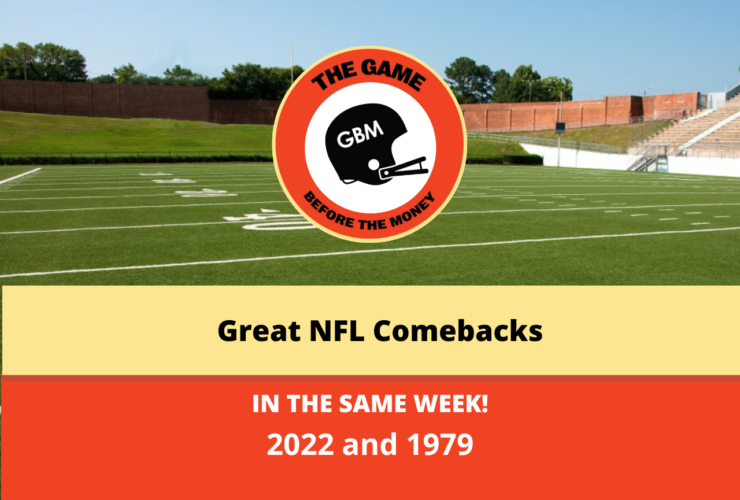Maya Washington is the daughter of Minnesota Vikings and Michigan State legend Gene Washington. She produced a documentary about her father which aired on PBS. She has also written a book. Through the Banks of the Red Cedar celebrates Michigan State’s recruitment of African American players in the 1960s. She interviewed via telephone for The Game Before the Money.
Michigan State Football in the 1960s
Michigan State head coach Duffy Daugherty recruited a number of African American players from Texas during the 1960s. Bubba Smith was from Beaumont’s Charlton-Pollard High School. Gene Washington hailed from George Washington Carver High School in Baytown. These schools were part of the Prairie View Interscholastic League (PVIL), the sanctioning body for Black schools in Texas.
Daugherty also recruited Clifton Roaf, father of Hall of Fame offensive lineman Willie Roaf.
The program lifted players into the NFL (four Spartans were first-round picks in the 1967 NFL Draft). The university also provided a tremendously positive influence upon the players and ultimately upon their families.
Embed from Getty ImagesGene Washington Book and Documentary
The Game Before the Money: What led you to write this book and produce the documentary?
Maya Washington: When my dad’s teammate Bubba Smith, passed away in 2011, I started to hear a lot of these stories about the Duffy Daugherty pipeline and the details around how my dad actually got to Michigan State. That was really the thing that inspired me. Bubba Smith was the reason my dad got to Michigan State. He actually made the recommendation to the coaches.
It was too late — because (Smith) passed away — to say, “Thank you” or to say, “Look what you did for my dad and look how what you did for my dad impacted me.” So it was really inspired by that gesture that Bubba Smith made on behalf of my dad. Also, it was really recognizing that this story about the desegregation of college football is really significant and important.
Michigan State Football Integration
The Game Before the Money: Those 1960s Spartans didn’t have only two or four African Americans on the team, unlike other “integrated” teams. Also, some programs had discrimination and other issues. There was much more diversity on Daugherty’s squads.
Maya Washington: Absolutely. It’s really the moment where we started to see numbers that are almost closer to what we see today and that major demographic shift at Michigan State specifically at that time period throughout the 1960s. They had been recruiting since kind of the late 1940s and 50s. But to see that many (on the team) and have college sports be nationally televised in ways that we didn’t see before was a pretty significant shift. That coincided with the Civil Rights Movement and a lot of different legislation that sort of said, “Okay, this is this isn’t just a fluke, but that this is kind of the way it’s going to be.”
And for them to win national championships in 1965 and 1966, reiterated the point that to truly compete at the national level, you would have to integrate your program.
PVIL High School Football in Texas
The Game Before the Money: Your father grew up in La Porte, Texas. Because of segregation, he attended high school several miles away in Baytown. You went and visited that area. What was that like to walk in your father’s childhood footsteps?
Maya Washington: My dad grew up in Laporte, Texas. He was bused to Baytown because they did not provide a high school for Black students in his hometown. He lived walking distance from the public high school (in La Porte). Because he was Black, he could not attend that school. He was bused to Washington Carver, a school where colored children were able to attend, and an all-colored school in a segregated situation. And so, I think there’s so much richness and beauty in that history because of the political climate and the sort of pressure that they lived under.
The positives about how they grew up is that they really had to rely on themselves and rely on one another. There was a strength in Black communities and Creole communities. And in Texas, you have the Mexican-American community. You have this beautiful culture, and you have this sense of support and safety in your own community. But if you venture outside of that, it could be very dangerous for you and your loved one. Not only do you have substandard schools or maybe not even a school or access to education at all — if you injure yourself, you can’t just go to a hospital. If you’re hungry, you can’t just go to a restaurant, sit down, and enjoy a meal or walk in the front door of a hotel solely because of the color of your skin.
I can (in today’s times), go into a public restroom and ask to use it. I can go to a restaurant and ask to be served and most likely will be. I can go to hotels, I can go to schools, I can get help at a hospital
(Knowing) my parents experience is really important to me. For people who either didn’t grow up that way or for people who did — to say that your experience is valid and we’re not going to forget that. We’re not going to forget that just barely 50 years ago, things looked very different in the United States.
Embed from Getty ImagesThe Game Before the Money: Your father, Gene Washington, played high school football in the PVIL. He also lived very far away from his school. How did that situation work, and what were sports in the PVIL like?
Maya Washington: Thank goodness he had these amazing coaches who would give him rides to and from practice, to games, to track meets. My dad’s coaches were really instrumental in making sure that he could play sports.
For many of my dad’s teammates who were from the South, who I interviewed about what their experiences were like, they would get hand-me-down equipment often: hand-me-down uniforms, hand-me-down books. In a lot of ways, the things that were available to them were not on par with what their white neighbors who lived in the white side of town received.
Bubba Smith and Gene Washington
The Game Before the Money: Bubba’s father, Willie Ray Smith Sr., was a prominent PVIL coach. Bubba’s brother, Tody Smith, also played pro football. His brother Willie Ray Jr. played alongside Gale Sayers at Kansas before suffering a knee injury. Did your father know the Smith family outside of sports?
Maya Washington: They really only knew each other from sports. My dad also played basketball. Bubba played basketball as well. So I think it was basketball and football where they would encounter each other as opponents. My dad also played baseball and ran track.
Embed from Getty ImagesThe Game Before the Money: What’s really wonderful about that story is that the Smith family recommended your father to Coach Daugherty. That gave him the opportunity to get a college education and to break free from southern oppression. That says a lot about the Smiths and the African American community at that time.
Maya Washington: It still kind of shocks me that my dad would have played against Bubba and only was encountering Bubba Smith and his brothers in the context of competition as opponents. They could have very easily just focused on, young men from the Golden Triangle. They didn’t have to say, “Duffy Daugherty, why don’t you check out this guy, Eugene Washington, who’s about 100 miles away?”
I think that part of it definitely speaks to the idea of community or an awareness and a grace that elders in the community really possessed because they weren’t self-centered and self-serving, only thinking about themselves and their children. They were thinking about ways to help others who deserved an opportunity. And I know my dad is extremely grateful and so am I, that they thought enough of my dad and were the kind of people who really thought about, “How do we make life better for everyone and not just ourselves?”
That was really important to what was possible because Duffy, was able to recruit quite a few players from Willie Rae Smith, but also from my dad’s community and other parts of Texas.
Through the Banks of the Red Cedar is available on Amazon.com. The documentary is also available.
